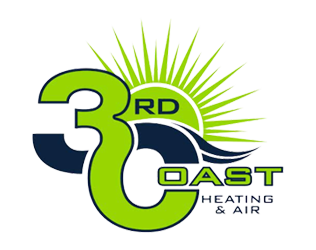Choosing the Right HVAC System for Your Custom Home
A Builder's & Homeowner's Guide to Energy Efficiency, Comfort, and Long-Term Value
Building a custom home is an exciting journey—one that gives you the opportunity to create a space that fits your lifestyle, taste, and long-term goals. But while flooring, countertops, and lighting fixtures often get all the attention, there’s one system that quietly powers your comfort every single day: your HVAC system.
Choosing the right HVAC setup during the design phase of your custom home can make the difference between long-term energy savings and years of frustration. It’s not just about heating and cooling—it’s about building a home that’s efficient, comfortable, and tailored to your environment and needs.
In this blog, we’ll walk you through what to consider when selecting an HVAC system for your custom home, the options available, and how to work with your HVAC contractor to get it right the first time.
Why HVAC Matters in New Construction
When you're building from scratch, HVAC isn’t just a utility—it’s a design decision. The system you choose impacts:
Comfort: Proper sizing and layout mean consistent temperatures and better airflow.
Efficiency: A well-designed system can dramatically lower monthly utility bills.
Air Quality: Ventilation, humidity control, and filtration protect your health.
Resale Value: Energy-efficient systems are highly desirable for future buyers.
Key Factors to Consider When Selecting an HVAC System
1. Home Size and Layout
Your home’s square footage, ceiling height, number of floors, and insulation level all influence the type and size of system you need. Open-concept homes, for example, may require zoned heating and cooling to maintain comfort across large areas.
2. Climate Zone
In West Michigan or other areas with four distinct seasons, you’ll need a system capable of efficiently managing both cold winters and hot, humid summers. Dual systems, like heat pumps with backup furnaces, are often ideal.
3. Energy Efficiency Goals
Many homeowners building custom homes are aiming for low utility costs and high performance. Look for systems with ENERGY STAR® certification, high SEER (Seasonal Energy Efficiency Ratio), and AFUE (Annual Fuel Utilization Efficiency) ratings.
4. Zoning and Smart Technology
Modern HVAC systems can be equipped with zoning controls and smart thermostats that allow you to adjust temperatures in different areas of your home. This adds comfort and reduces energy waste.
5. Indoor Air Quality
New homes are often built to be airtight, which means poor ventilation can trap pollutants. Consider systems that include high-efficiency air filters, humidifiers/dehumidifiers, and fresh air exchangers.
Popular HVAC System Options for Custom Homes
Here are the most common types of HVAC systems used in new construction, along with their pros and cons:
1. Central Air Conditioning + Furnace (Split System)
Best for: Homes in regions with cold winters and hot summers
Pros:
Reliable heating and cooling
Widely available and serviceable
Can be paired with high-efficiency options
Cons:
Ductwork required
May have higher energy use if not zoned
2. Heat Pump System
Best for: Moderate climates or energy-conscious homes
Pros:
Energy efficient for both heating and cooling
Great for year-round use
Can be ducted or ductless
Cons:
Less effective in extreme cold unless paired with backup heat
Higher upfront cost
3. Ductless Mini-Split System
Best for: Small homes, additions, or homes without ductwork
Pros:
High energy efficiency
Zoned temperature control
Easy to install in select applications
Cons:
May not be ideal for larger homes
Indoor units visible in each zone
4. Geothermal Heat Pump
Best for: Homeowners investing in long-term energy savings
Pros:
Extremely energy efficient
Low operating costs over time
Quiet and durable
Cons:
High installation cost
Requires suitable land for underground loops
Working with Your HVAC Contractor: What to Ask
When building a custom home, your HVAC contractor should be involved early in the process. Here’s what to discuss:
System Sizing: Are they performing a Manual J Load Calculation to ensure proper sizing?
Duct Design: How will ductwork be routed for maximum efficiency and minimal noise?
Zoning: Is your home a good candidate for multiple zones?
Air Quality Add-Ons: Should you include a whole-home humidifier or air purifier?
Maintenance Needs: What service is required, and are maintenance plans available?
A good contractor will collaborate with your builder and architect to ensure your HVAC system fits seamlessly into your overall home design.
Don’t Forget Ventilation and Fresh Air
Modern homes are better insulated and more tightly sealed than ever. That’s great for energy savings, but it also means proper ventilation is critical. Consider including a whole-home ventilator (HRV/ERV) in your HVAC system to circulate fresh air while maintaining indoor temperatures.
Cost Considerations and Long-Term Value
While it’s tempting to cut corners on HVAC to allocate budget elsewhere, remember: your HVAC system is one of the most-used systems in your home.
Upfront investment in energy-efficient equipment can save thousands in utilities over time, while also increasing the resale value of your property. Many states and utility providers also offer rebates and tax credits for energy-efficient HVAC installations.
Why Work with a Local HVAC Partner?
Choosing a reputable, local HVAC company—like Third Coast Heating and Air if you're in West Michigan—means you're getting:
Local climate knowledge
Responsive service after the build
Familiarity with building codes and permitting
Better communication with your construction team
Choosing the right HVAC system for your custom home is a decision that affects your comfort, health, and budget for years to come. With so many options on the market, the key is to work with an experienced HVAC contractor who can guide you based on your layout, goals, and climate.
If you’re in the early stages of building—or ready to finalize HVAC plans—Third Coast Heating and Air is here to help. We specialize in custom installations for new homes, offering energy-efficient systems, smart technology, and expert consultation throughout the design and build process.
Call us today at (616) 209-8019 or visit www.thirdcoastheating.com to schedule a consultation and build comfort into your dream home.

